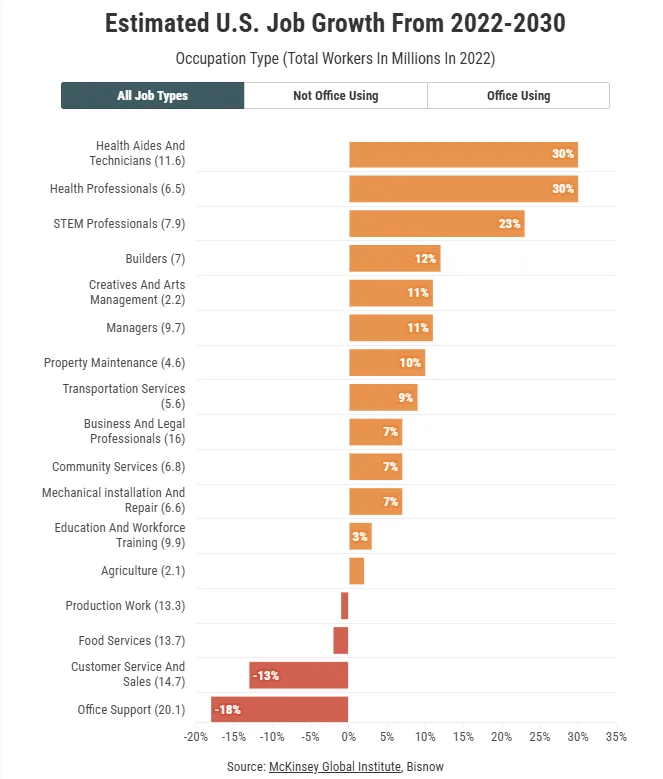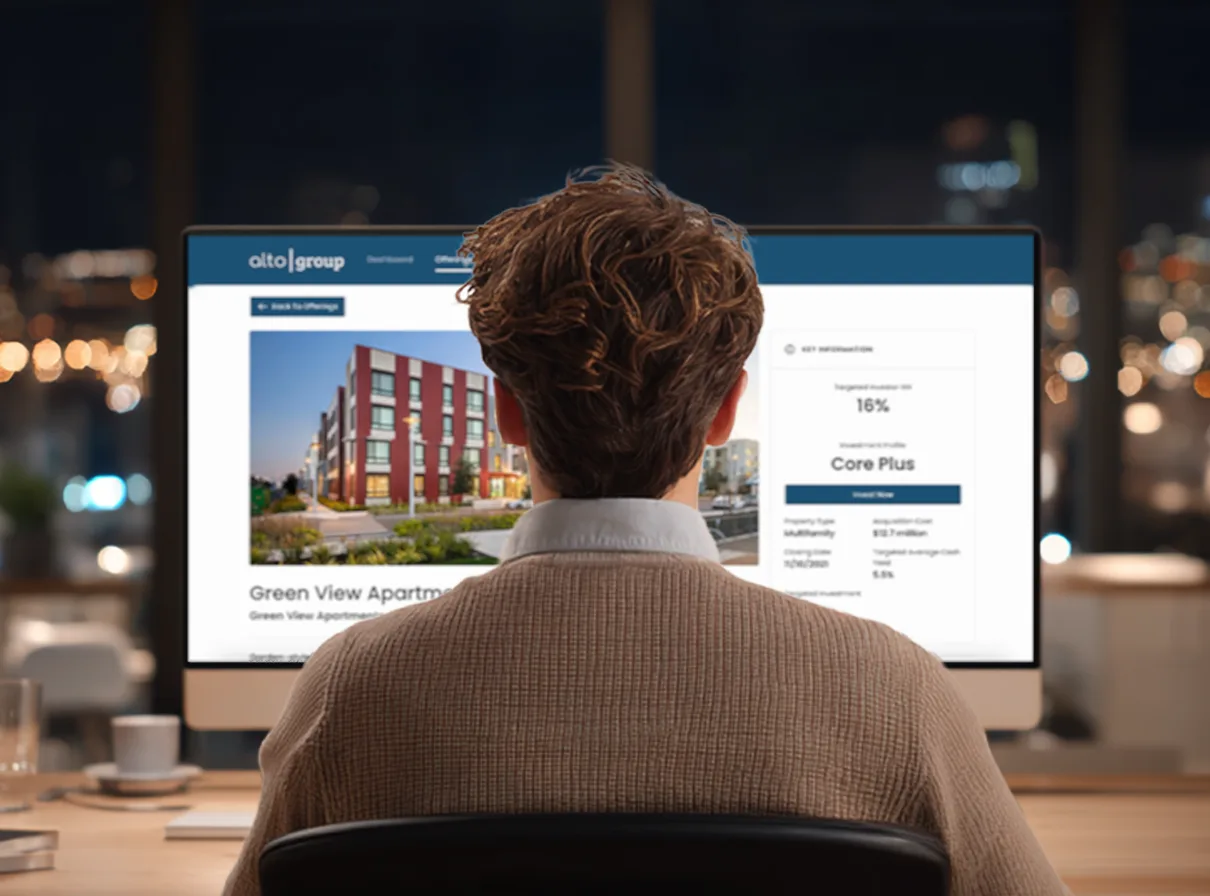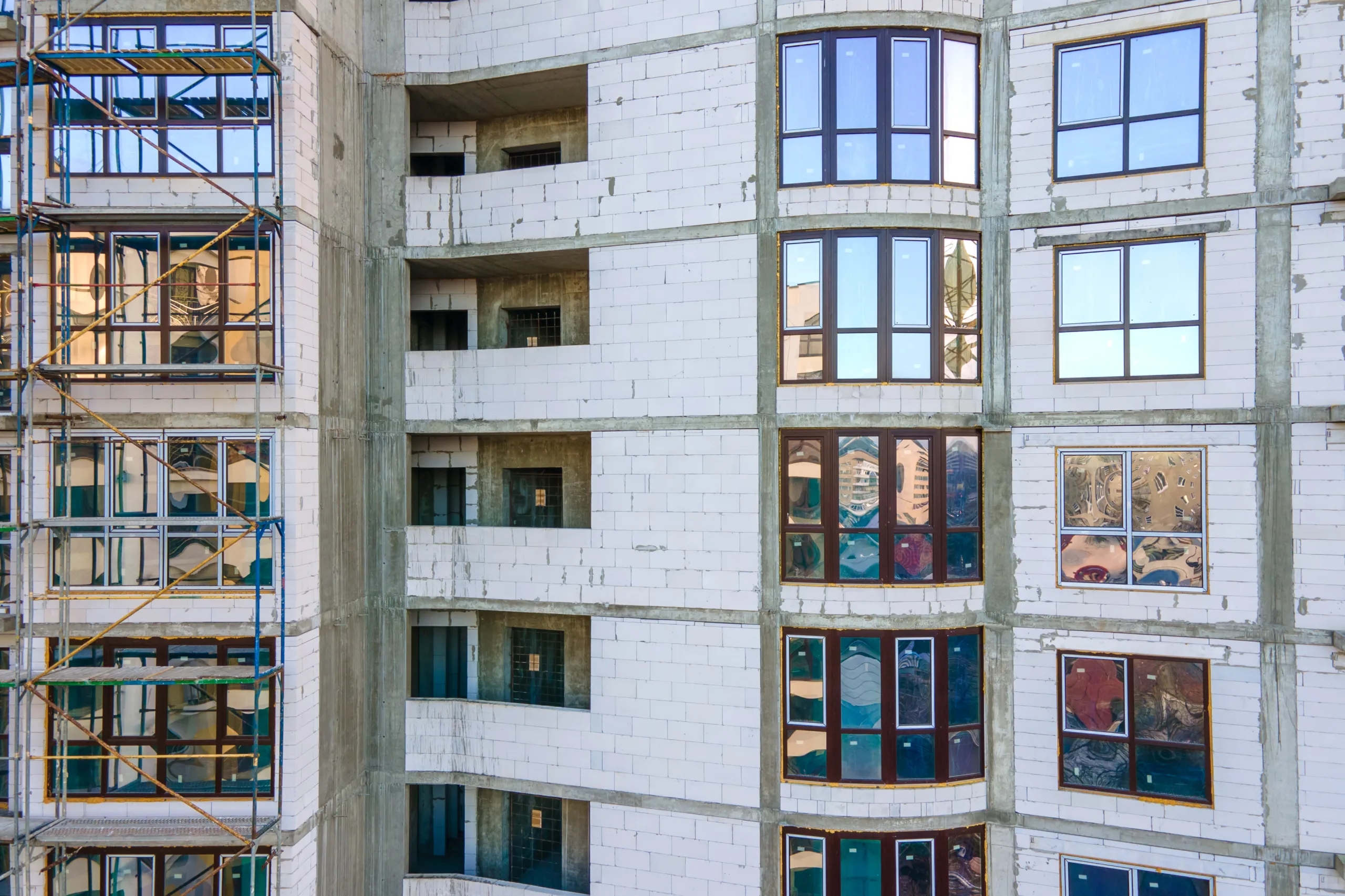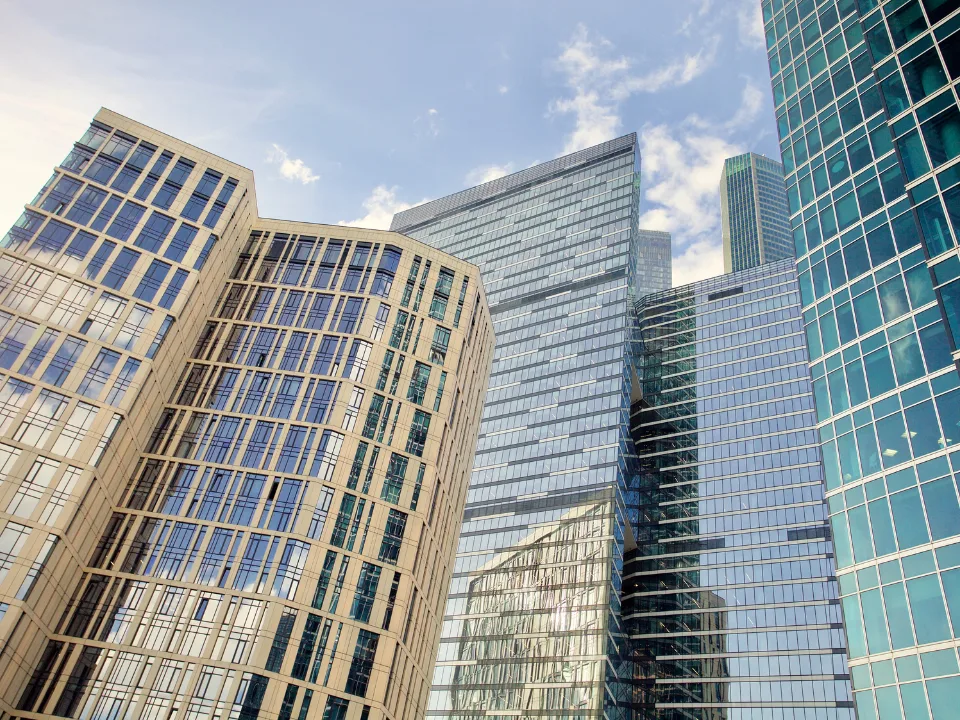- AI is accelerating the shift to smaller, high-quality, collaborative office spaces.
- Long-term leases are giving way to flexible, short-term strategies amid ongoing change.
- Job displacement from AI could free up millions of SF, while new roles shift space needs.
- Companies are targeting tech hubs and premium spaces to attract and retain top talent.
AI Builds On The Pandemic’s Disruption
AI’s integration into daily corporate operations is the next major force reshaping the office landscape, reports Bisnow. The COVID-19 pandemic broke the norm of centralized, long-term-leased office towers. Now, AI is reinforcing the shift toward leaner, more flexible workplace models.
JLL’s Peter Miscovich said companies now refresh space plans as often as every three months—far from the once-a-decade real estate strategy of the past.
Flexibility Is Now A Business Imperative
Ten-year and 20-year lease agreements are increasingly seen as liabilities. Companies are adopting shorter lease terms and adding coworking options. They’re also decentralizing office footprints to tech-heavy hubs like New York, Seattle, and Miami.
Amazon exemplifies this shift. While pausing its Virginia HQ buildout, the company has signed leases in Wynwood, Manhattan, and Silicon Valley—often through flexible coworking deals with providers like WeWork.
Get Smarter about what matters in CRE
Stay ahead of trends in commercial real estate with CRE Daily – the free newsletter delivering everything you need to start your day in just 5-minutes
AI’s Dual Impact On Jobs And Space Needs
While AI could displace millions of support and administrative roles, it is also forecast to create millions of higher-skilled jobs. McKinsey predicts 92M jobs will be disrupted globally by 2030, but 170M new roles will be created, many in management, STEM, and creative fields.

However, this transformation also means less need for traditional office space. For example, a projected 700K lost administrative jobs could translate to 92M SF of unneeded office space globally.
Premium Space For A Smarter Workforce
AI isn’t just cutting headcounts—it’s redefining what kind of offices companies want. The shift favors premium, tech-enabled environments designed for collaboration and innovation. That’s prompting a growing bifurcation between trophy assets and obsolete legacy space.
CBRE’s Lenny Beaudoin emphasized that next-generation jobs will need next-generation offices. These spaces should be designed to support creativity and teamwork—not back-office processing.
Real Estate Follows Tech’s Lead—Slowly
Despite AI’s quick impact, commercial real estate remains slower to adapt. But as AI continues to alter how and where people work, expect an acceleration in corporate space strategy, with more companies looking to do more with fewer employees and smaller, smarter footprints.
The office sector’s next evolution has begun—fueled not just by hybrid work, but by artificial intelligence’s growing role in shaping workforce needs and spatial economics.


















